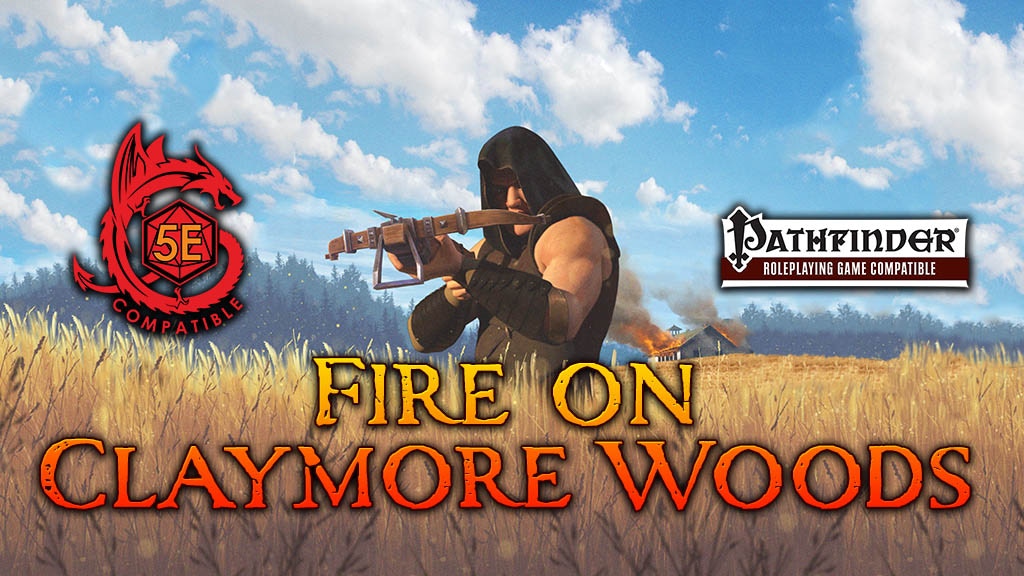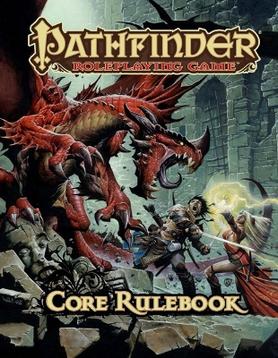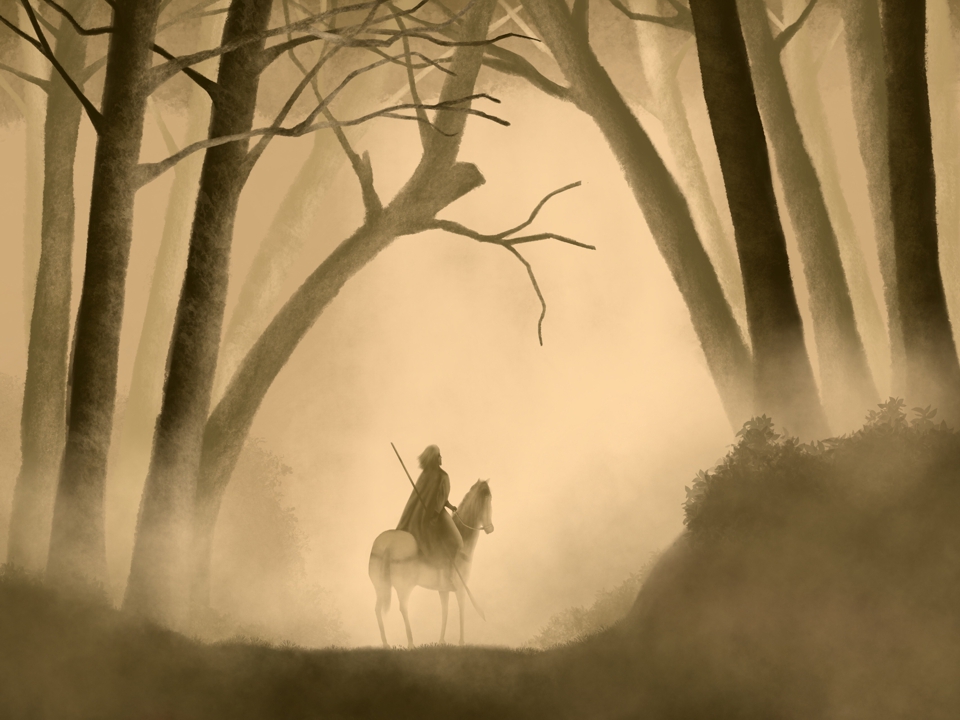In D&D and its derivatives, like Pathfinder, the designers, all the way back to Gygax and Anderson, developed a complex, highly detailed magical system that permeates everything. Low magic or high magic, epic magic, or gritty, it’s a beautiful system to play a fantasy roleplaying game.
And right from the get-go, a Dungeon Master (DM/GM) can use the system to add conflict to their campaign. This post is about Cold War-style conflict, that added undercurrent to the main events going on that add tension, tone, and drama.
A hot-war will take over the campaign. The Magical Cold War will add flavor to it.
Set the Stage to the Magical Cold War
D&D 5E has a magical system around these core concepts:
- Arcane magic—direct from the weave of magic
- Divine magic—magic from the gods
- Druid magic—drawing on the divine essence of nature itself
You know what that looks like on the surface? It seems like three factions. Factions are a great way to add theatric sub-plots to a campaign setting. A low-level hum of struggle against the backdrop of PC actions that inserts authenticity onto the environment.
Defining the History of Magical System Conflict
Now that we have the three factions let’s see why they oppose each other.
Arcane Magic Users
Some time ago, demons corrupted a group of powerful sorcerers. These sorcerers started to take over small provinces to the Empire in secret. They built up considerable momentum but were found out by the Providence Magisters (similar to court wizards) in the more significant imperial regions. Events spiraled out of control, and rather than bring in divine help from the various churches, the magisters turned to infernal support through bargains with archdevils. Many of them turned themselves into liches.
Eventually, the wizards prevailed, only to be turned upon by the divine churches of the Empire.
Divine Magic Users
Caught unaware of the demon-devil conflict in their midst using wizards and sorcerers as their proxies, the churches of the Empire fought both and held the Empire together with sheer will, divine magic, and large numbers of men-at-arms. They fought a cataclysmic war with both arcane factions, but suffered heavy losses and the Empire collapsed into fragmented, waring kingdoms jockeying for power and survival. A dark age came upon the Empire, and they could not stop it.
Druidic Magic Users
The hierophants of old stepped into the power vacuum, and each regional archdruid organized what little remained of civilization into pockets of peaceful, relatively safe areas. They instituted monarchies to quickly assemble the remanents into a usable hierarchy. Not wanting to repeat the mistakes of the past, they installed themselves as the overseers of food production, the surviving paladin orders as Inquisitors, and forced arcane magic users into a caste system of serving the people, banned from holding positions of power.
However, over time, the monarchies became powerful nations. Eventually, they instituted the position of the Court Wizard, in which wizard schools, formally wizard prisons, reported to the Court Wizard, who in turn pledged fealty to the King.
Just an Example
This is just an example of the historical conflict. The idea is to be brief—this happened long ago. That also allows the DM the flexibility to flesh out more lore as needed. As long as the three factions had a conflict in the past, it’s all good. And it doesn’t even have to be true. It could be just what people believe and what is in the history books.
Define the Current Magical System Conflict
Now that we have our history, what are our three factions up to? Apparently, shenanigans. Many shenanigans. Since this is all about conflict and drama—have some struggle and tension.
Arcane Magic Users
At one point, arcane magic users chafed under the yoke of Inquisitor tyranny (from their point of view), but that was long ago. Wielders of the arcane enjoy state-sponsored rights and protections for the “privilege” of policing their own—making sure the younger mages and sorcerers toe the line. However, these factions cross national boundaries, and over time, the Court Wizards formed a Council of the Arcane. While the nobility of the various nations deploys power through their feudal system, it is the Council of the Arcane that rule behind the scenes, now working to bring back the glory of the Empire by appointing an Emperor of Nations.
Two groups stand in their way—the Inquisitors that prevent the churches from falling in line and the Druids that run the nations’ agriculture systems. Yet in some rural areas, there are wizards and other arcane users who believe the Council to be an oppressive organization dedicated to stripping away freedom and dignity, all in the name of law and order.
Divine Magic Users
The churches of the nations, sharing the same pantheon, do not want to change the system that gives them power, money, and influence. Things are fine just the way there are, now that they’ve clawed their way back from the brink of annihilation.
Some paladin orders, however, stick to the old school way of doing things, which includes (but not exclusively), the Inquisitors. The Inquisitors aren’t buying the Council of the Arcane at all and undermine them at every opportunity, including waging 4th Generational Warfare in nations that have given their wizards more power than they should. They’ve been here before and see where this is going: a Cabal of Liches, plunging the realms into darkness one more “to save the people’s souls from demons once more.”
The Inquisitors have tried to engage their previous allies, the Druids, to no avail. Some think they’ve been compromised by witches and cultists.
Druid Magic Users
No one could say exactly when the nobility came to be the top of the hierarchy over the archdruids, but that’s what happened. Most druids have forgotten their contribution to putting together the pieces of the Empire back into a small modicum of civilization. Many wonder if that was a good idea, given the large Cities of Men and the power of churches. Churches are more concerned with coin and station than the divine souls of their subjects.
Regardless, the new Council of the Arcane seems precisely like an organization the Inquisitors of old, organizations the archdruids founded long ago, were supposed to prevent. Still, all indications are the Inquisitors are sitting on their hands without church backing or any semblance of higher organization, each Inquisitor chapter acting like a coven of witches or a cultist cell.
Now Engage the Magical Cold War
There you have it. The gist of the Magic Cold War is:
- It is background conflict and drama
- No one except a few want to see it turn into a Hot War
- Each faction has a history
- Each faction has a current description of why they are in conflict
That’s the recipe. DMs interested in fleshing out their worlds now have a framework on how these magical groups interact with each other, and it’s all conflict and drama. Each faction even has sub-factions that cause issues within the bloc and without, and there are also small groups that could ally themselves with like-minded members to the “enemy” factions.
The idea is here is that there are paladins who hate wizards and sorcerers. Why is that? And why do the druids have power over food production? And why is there some underlying conflict in cities with strong wizards, etc., etc.?
The Cold War. It’s everywhere. And sometimes it seems nothing can stop it from becoming a Hot War. Put that in the back of your campaign world and see how your players react. And it’s an excellent DM vehicle for tension.
Or, perhaps, a vehicle for lighting the nations on fire.
PC Wizard: Where is Lord Drake? We’ve returned from our quest.
Paladin: I hung Lord and Lady Drake for being witches consorting with demons.
PC Wizard: …
Paladin: …
PC Wizard: We’re not demon consort, um, consort-ers.
Paladin: That’s why you’re still standing here. I am Inquisitor Johanson of the Order of the Platinum Oath, and by the authority given unto me by the First King, I demand you help me save the souls of this demesne.
PC Cleric: You have no author…
Paladin: Quiet acolyte, the adults are talking.
PC Wizard: Why do you even trust me?
Paladin: Because I heard you speak against the Council. Because Bahamut told me to. Now, do you want this spellbook we’ve been keeping in our reliquary for hundreds of years or not?





 tossed in the air, it flies in a direction for several rounds, leaving a trail of blue, sparkly, motes, and drops to the ground.
tossed in the air, it flies in a direction for several rounds, leaving a trail of blue, sparkly, motes, and drops to the ground.













